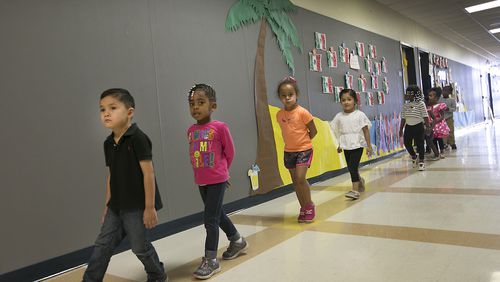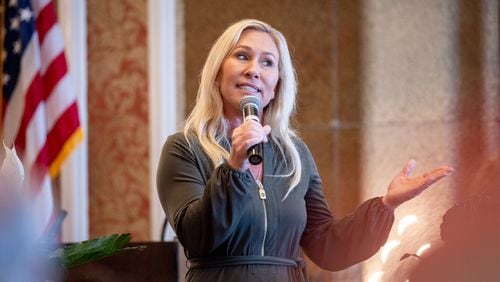The well-intentioned civic and corporate leaders behind the metro region's new Learn4Life initiative are self-aware enough to know there’s going to skepticism about another master plan to improve education outcomes for the 600,000 students in eight metro school systems. They were quick to talk about their approach as a movement rather than a reform and to say Georgia can no longer treat activity as progress.
But as I listened to the speakers and the superintendents’ panel this morning at the Metro Atlanta Chamber in downtown Atlanta, I didn't hear anything I haven't heard many times, going back to the political reigns of Roy Barnes and Sonny Perdue. We are still talking about the same stuff.
In fact, I reread an AJC editorial I wrote in 2003 in response to Perdue's education initiatives in which I wrote: "Now, for the first time in Georgia's history, poor kids are expected to achieve at the same levels as their middle-class peers. They will need help. They will need extra resources. They will need an expanded pre-k program that will enroll children as young as 2 to even the playing field and ready them for kindergarten."
We haven't pulled that off yet, as Atlanta Public Schools Superintendent Meria Carstarphen noted. "We need to make a commitment to help our families from zero to age 3," she told the crowd. "Now, there is tremendous lift that has to happen when our kids come into pre-K."
A collaboration of the Metro Atlanta Chamber, the Atlanta Regional Commission, the Community Foundation for Greater Atlanta and the United Way of Greater Atlanta, Learn4Life represents a coalition of metro school systems, communities, business and nonprofits that plan to use a data-driven, collective-impact approach to improve workforce readiness and student achievement. Learn4Life cites the success of the model in Cincinnati, Dallas and Minneapolis.
At the program today, Learn4Life took stock of six major benchmarks in education: kindergarten readiness, third-grade reading, eighth-grade math, high school graduation, postsecondary education and getting a job. The findings in what Learn4Life called its inaugural "State of Education in Metro Atlanta Baseline Report" were disappointing.
Only one in five children in the region has access to high quality childcare; only 40 percent of third graders read on grade level. When you look at low-income students, the percentage plummets to 25.3 percent. Thirty-eight percent of eighth graders are proficient in math.
A bright spot was Georgia's high school graduation rate of 79 percent. Of those grads, 75 percent pursue some postsecondary education, but the completion rates falter. Less than a third get a credential or degree.
The wise sage on the stage was Gwinnett Superintendent J. Alvin Wilbanks, who earns the title based on both longevity and success. Wilbanks has led Gwinnett since 1996, collecting dozens of national awards along the way. Indeed, he was asked this morning what his "secret sauce" was in Gwinnett.
Wilbanks cited Gwinnett's commitment to strong principals and quality teachers. "You need a good teacher in every classroom and you need a good principal in every school. I have never seen a poor school with a great principal and I have never seen a good school with a poor principal."
There was a lot of enthusiasm in the meeting room and a lot of expertise, including former Fulton deputy superintendent Ken Zeff, who is executive director of Learn4Life. I'm not sure there's as much enthusiasm outside the room for a collective approach to solutions that raise all boats.
An obstacle to meaningful education change is often a lack of public will. It's hard to get people to think beyond the needs of their own children and their own schools. That's natural; parents focus on their children.
The problem is our political leaders have sidestepped the issue by talking about giving parents more choices for their kids rather than creating quality choices for all kids. As long as we cast education as an individual endeavor rather than a community good, we aren't going to get where we need to be.
About the Author







